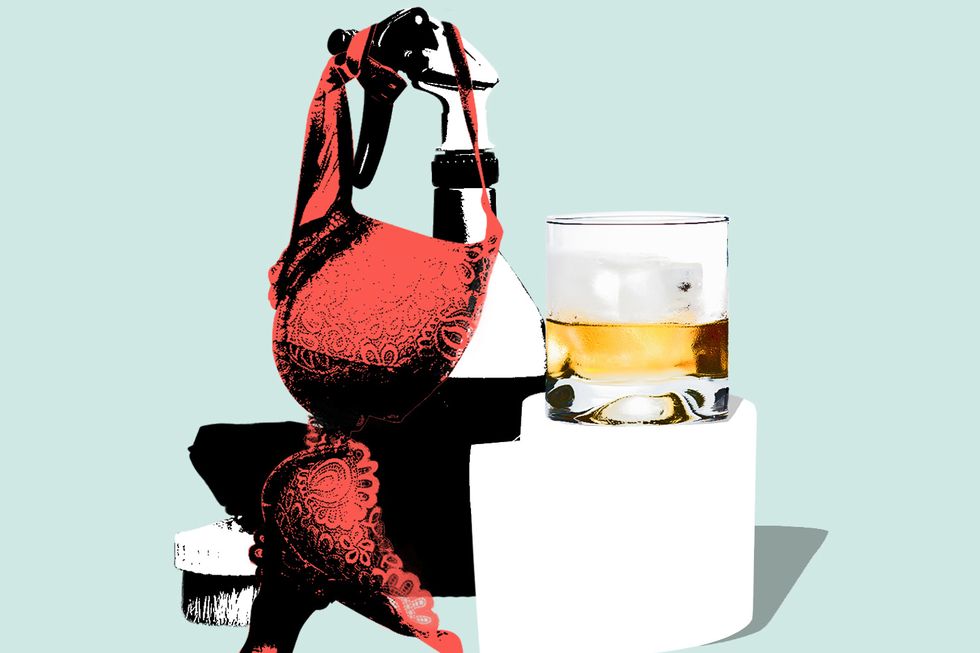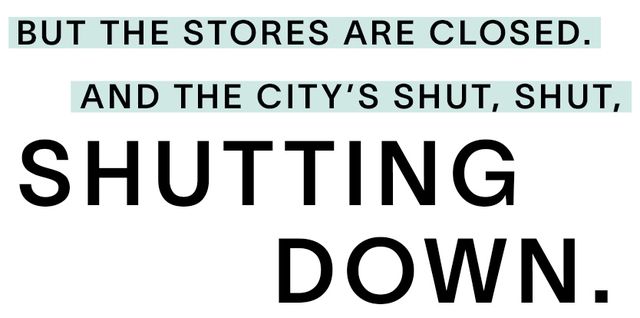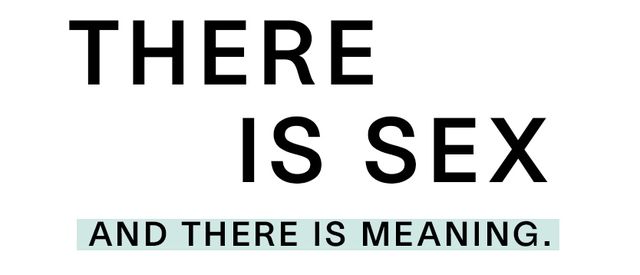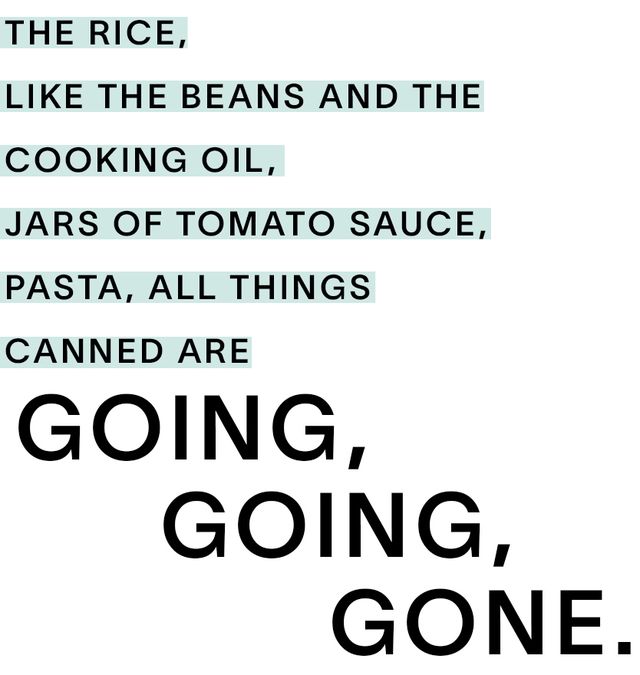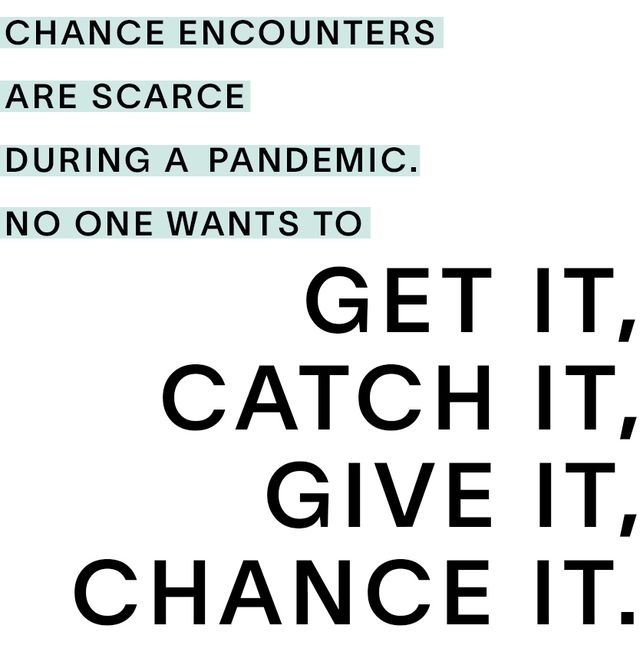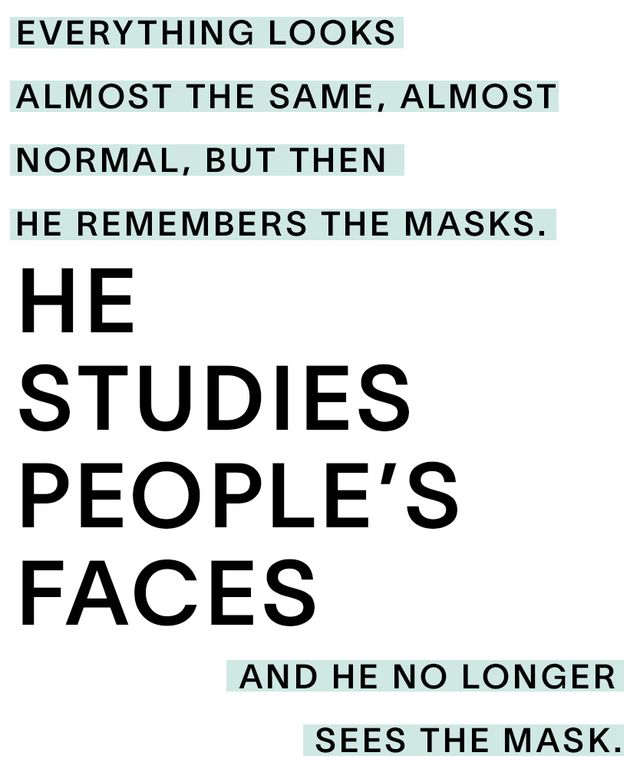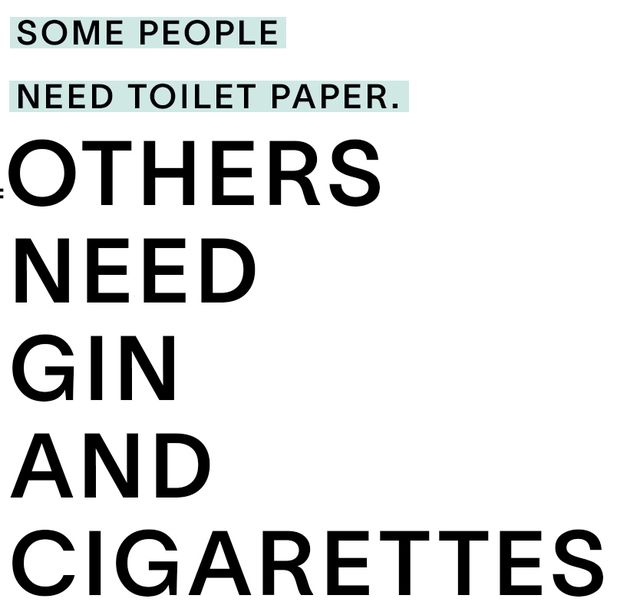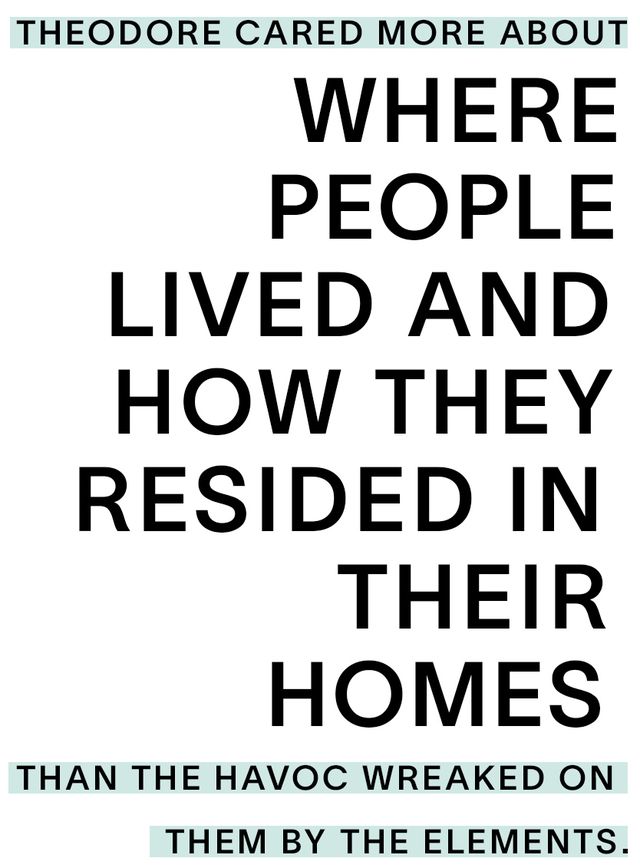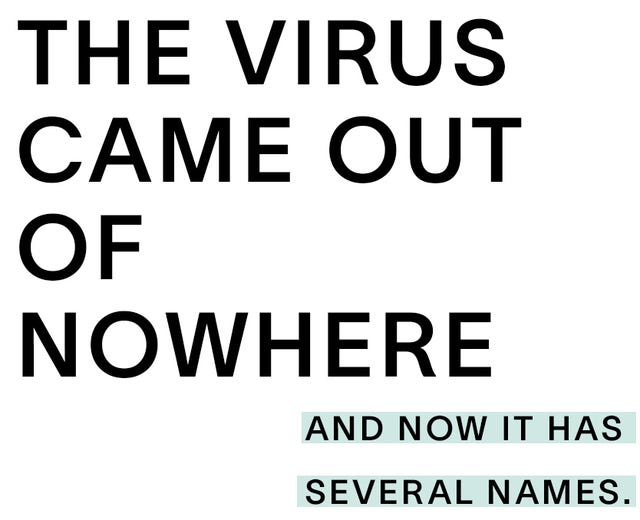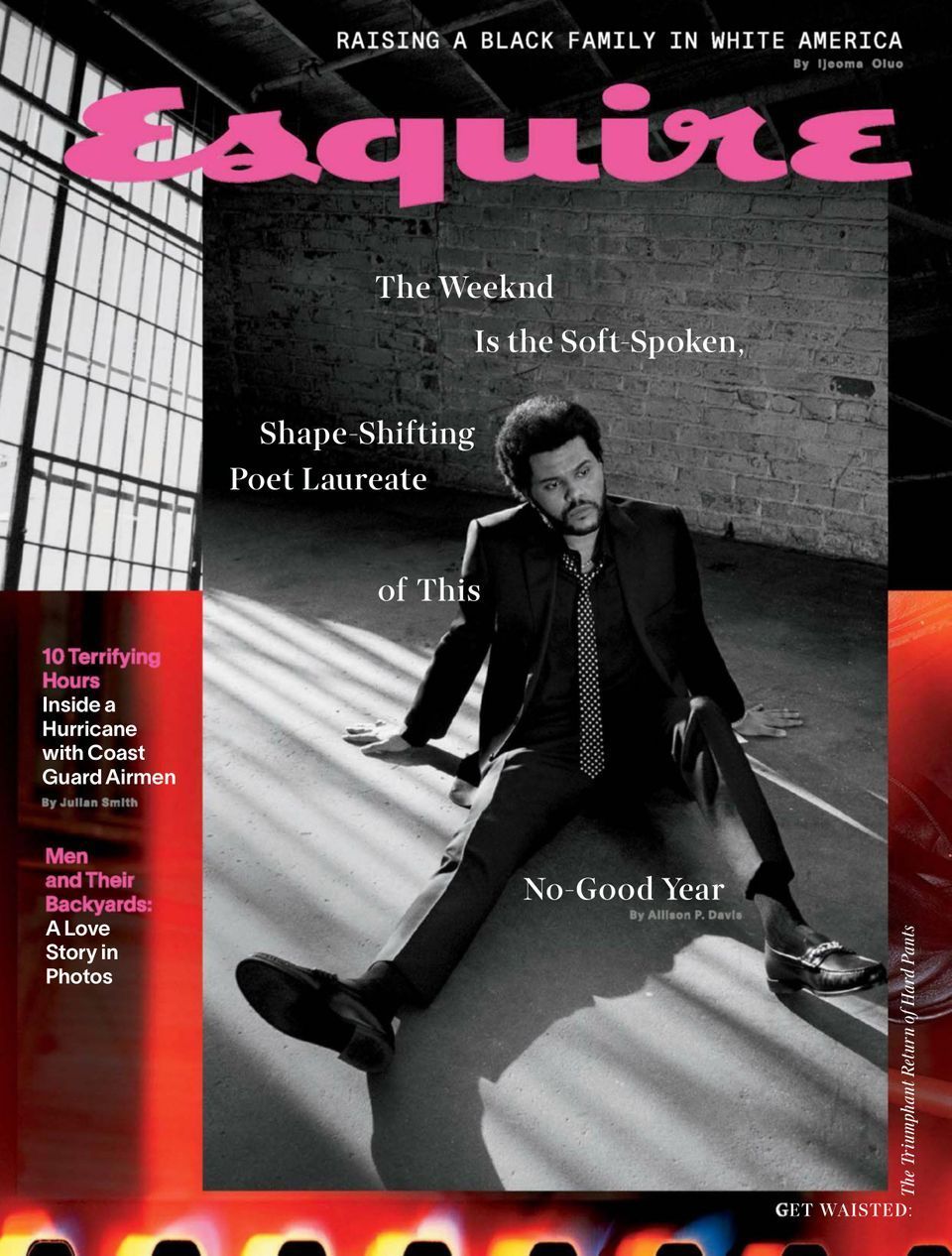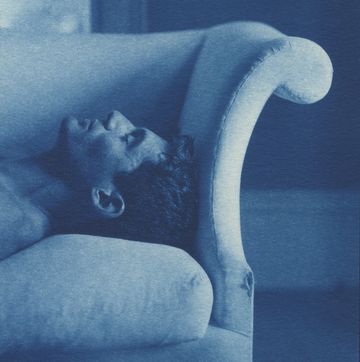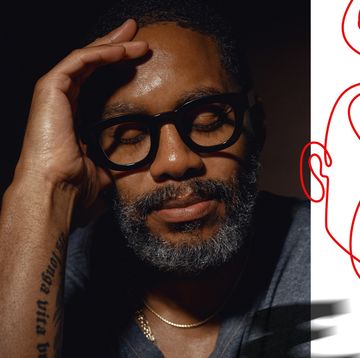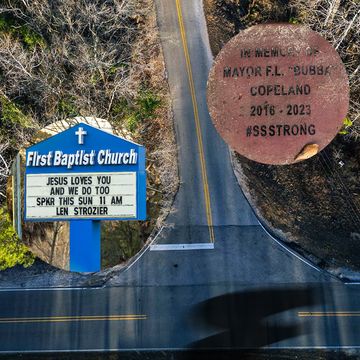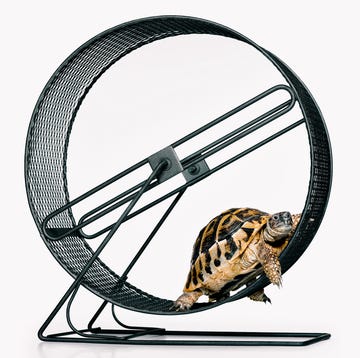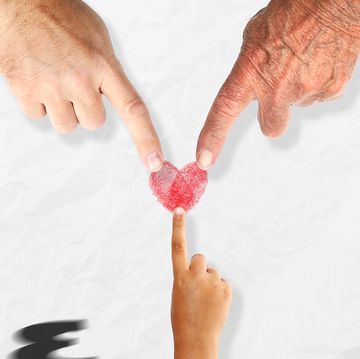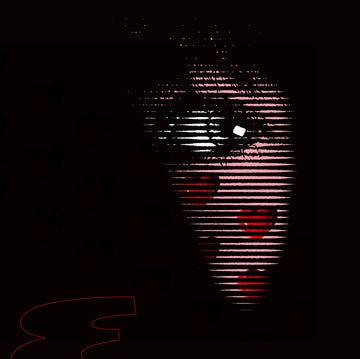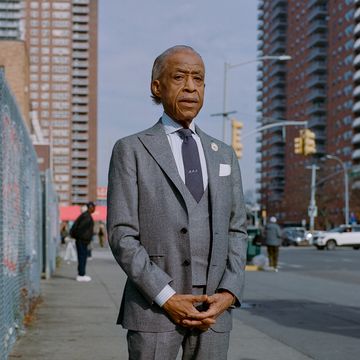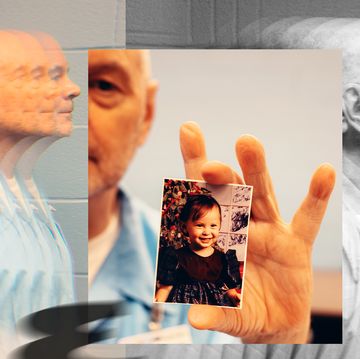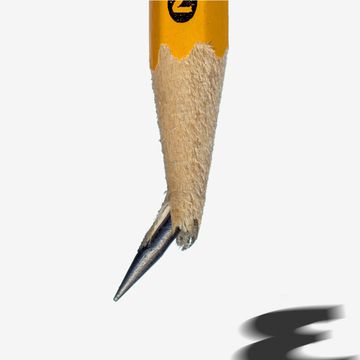Mr. Harper takes sex in doorways. Halts new lovers at the threshold of his front door. Left hand on shoulder. Right hand on hip. He searches the ninth-floor hallway for furtive eyes before pressing the whole of himself in the tender nook of his lover’s ass.
“Here,” he says. There is gravel in Mr. Harper’s voice. He understands the implications of force. Social distancing was in place before the lockdowns, the gloves, the masks. He waits for a greeting, a slight rearing back, a double-cheeked sway, the perfect balance of ass to cock and cock to ass. He will undo his pants in a matter of seconds and let left hand descend, down, down, down the slender side of his lover’s body, bringing disorder and chaos. He has done this deed a thousand times where he now stands: gripping the doorknob to his front door. If you asked him, he would tell you with gravelly certainty that his profession as an aesthetic advisor helps. Geometric shapes on beveled glass door, volute, chrome handles, ornate gold bell. Fixtures that have stood the test of time. Inanimate objects are immune to pandemics and viruses, though the wrong touch, in this environment, could make a well man sick. He knows the right cleansing agents to refinish, to buff, and to restore. Tournez a gauche—left is for opening doors. Tournez a droite—right is for closing them.
If a woman is wearing pants, he waits for her to unzip while he unbuckles. “Pants are so damn cumbersome,” he says, mouth working the curving nape of her neck or the armpit of a shirt he’s just pulled off. And if she wears a skirt or a dress—God’s gifts, he thinks, for the ease with which they allow him to slip off underwear, cotton or polyester or silk. Perhaps it’s his midwestern upbringing, but Mr. Harper is always a little disappointed when he finds them riding bare beneath their clothes. Exposed private parts make the public part of sex less private. To rip, to tear. He’s never worn nor does he sniff/collect underwear as souvenirs. But he has annihilated his fair share. Hers. His. And theirs. Why grapple with social constructs or the contradictions within himself? Everything is an opening onto something else.
But the stores are closed.
And the city’s shut, shut, shutting down.
Hard to believe—rock bottom, rock bottom hard—that not even a month ago he helped a real estate agent sell three houses in one week. Walked into a 1900s Victorian in Ditmas Park where West Indian families, intent on suburbia and white picket fences will never be able to return upon sale. May Florida and Long Island keep them—he thought, turning to Simon Young, the real estate broker, and the eager young buyers.
“Let me tell you a thing or two about doorways. The Egyptians built them as portals to the afterlife, a means of transcendence, their version of somewhere over the rainbow via waterways...”
What he wanted to say was: the trick to sex in doorways is to see if you can begin and complete the act—slam bodies together tight as clams. The sex is for you, never for intruder, voyeur, happenstance, other, her, him, them, though the anticipation comes with its own frills, thrills and expletives. When the sex plays right, your throat convulses, oh, yes it does, and the air threatens to leave your body. When the sex plays right, you stare at the ones who beg for a change of scenery—wanting to finish fucking on thePersian carpet or the hardwood floor or the sofa, bed, desk. Whinny Whoop. Whinny whoop whoop. “Next time, darling....” You tell them. But that honor is saved for women or men you want to see again. There is sex and there is meaning.
It is the hidden door you point out to the eager young couple—right behind the fire place—that lands the sale. As soon as they leave—calling their real state attorney on the way out the door—you fuck the real estate agent to celebrate. The outing is better than cognac or Veuve Clicquot. But the real estate’s experience rates altogether different. He confesses to his partner Felix, with whom he shares an open relationship and hides nothing, that fucking you made him grateful he isn’t straight. “We have our anger,” Simon said. “But straight anger’s a human rake.”
Now, if you live in the wrong neighborhood or the right neighborhood—Mr. Harper lives in Park Slope—toilet tissue is in short supply. He goes to Glory Groceries on 7th Avenue on the way home from work and you would think a colony of ants had usurped humanity. The shelves are depleted and the manager—what is he? Maybe he’s Hispanic? Latino? —the manager has worked in Glory Groceries over a decade and Mr. Harper, who has shopped in the store for just as long, has never thought to ask his name. The manager is frazzled and lugs two twenty-pound bags of rice on his back. Every aisle in the store—one through eight—is jam packed with customers. The rice, like the beans and the cooking oil, jars of tomato sauce, pasta, all things canned are going, going, gone.
The manager assaults Mr. Harper with unexpected civility. “How’s your wife?”
Mr. Harper smiles, “She’s coming along. We’re pregnant.”
“Congratulations,” the manager says. He waves his ungloved hand. “Never thought I’d see this.”
This is the early days, the eve of the lockdown. Mr. Harper doesn’t know how to respond or what to say. “Welcome to the zombie apocalypse.” Is it his imagination or when he blurts out zombie apocalypse, does the manager step away from him? Do the anxiety ridden shoppers quicken their pace?
The manager says, “My wife thinks the world is ending. I don’t know. Maybe the world is ending.”
There are too many people in the store. There are too many people on the planet. There are too many people invading his space and being frantic. Mr. Harper prefers his frantic coital, carnal, strings undone but not attached. Surrender. Hands up. It is his turn to back away. He’ll find a better day, another store. “Mother Nature’s acting out. Population overload.”
A senior citizen, wire glasses, gray beard, pushing a buggy piled sky high with Gorton Fish Sticks, Stouffer’s family sized lasagna, Amy’s Pizza, and Jolly Green Giant frozen vegetables does a U-turn. “You hush your mouth. People said that shit during the AIDS epidemic. Hotspot. New York City. Hotspot. Pandemic, Fucking politicians. Where’s the lard? So stupid.” He walks away leaning on his buggy like it’s a walking cane, black and white shirt a moving chess board. Mr. Harper retreats through the store’s double glass doors.
Theodore Harper brought the Art Deco door with him when he closed on his apartment. He had scoured antique stores around the city in search of the perfect door. The one that would set the entrance to his home above the rest. That was over twelve years ago. And that shopping spree, that splurge, marked a shift to a successful career as an aesthetic advisor, after selling furniture to filthy rich people at ABC Home and Carpet for nearly a decade. He never shares with lovers that his co-op was once rent stabilized and that a third of the renters were second and third-generation African American and Hispanic families. Or that his neighborhood was considered part of Prospect Heights before the real estate agents rechristened it the North Slope, creating an imaginary zoning line that synced with his new career. From the South Slope to Fort Greene to Bedford-Stuyvesant to Williamsburg, real estate agents now came equipped with aesthetic experts like himself. Most of them, in his opinion, shams. Mr. Harper made peace years ago with his midwestern architecture degree and background. Frank Lloyd Wright country, he barks/smiles whenever there’s the need to put down some East Coast comeuppance.
Possibility.
Probability.
Personality.
He wears a mask and plastic gloves when he leaves the apartment now or ventures down to the lobby to retrieve his mail or pick up takeout. Only residents are permitted to enter their co-op building. The board’s decision—he is on the board—resulted in half the residents fleeing Park Slope for country homes. Other residents have hunkered down—he and Darla among them—in their apartments. A handful of fledgling couples consisting of girlfriends, boyfriends and others are betting that love will endure the quarantine.
In the lobby, a subletter—must be a subletter—holds the elevator, waiting for Mr. Harper to join him. Mr. Harper does not recognize the young man. There are only three families of color left in his building. The African American teenager seems dwarfed by an oversized Cardi B t-shirt with “Diamond District in the Jag” splayed across Cardi’s authentically fake breasts. The teenager uses a red bandana for a mask. Mr. Harper is certain he is neither resident nor resident’s kid, but the teenager pushes the close button before Mr. Harper can confront him.
“Fuck it,” the teenager says, as the door closes. “Be that way then.”
Hell nor high water could get Mr. Harper on an elevator right now anyway. He walks up the nine flights of stairs to survive. He sings Coldplay’s “The Scientist.” Darla’s favorite song. He does not even like Coldplay, but Darla plays the song sometimes at night on her bassoon. She paces up and down the barren hallway. No need to worry about disturbing their neighbors. One plus one equals two. They’re all the ninth floor’s got, not including baby boy or girl on the way. Mr. Harper inserts the key into the front door and then removes his gloves. Retrospection is a slippery thing. And plastic irritates his skin. Is it retrospection or the plastic gloves that irk him?
“Gloves give you a false sense of security,” Darla likes to say.
She uses hand sanitizer in between making masks for friends and family. She has made over twenty from leftover fabric in her arts and crafts kit, following a tutorial onYouTube.
Like many Americans, Theo and Darla share daily rituals. Theo is an early riser, so in the morning when he wakes up and before he makes coffee, he moves about the apartment wiping down everything: tabletops and counters and knobs and the handle to the refrigerator, the economy washing machine and dryer, the dishwasher, faucets, toilet. Darla takes over the task in the afternoon—after lunch. She is not nearly as thorough as Theo and prefers eco-friendly cleansers with lemon, baking soda, vinegar, and lavender. He does not trust the eco-friendly cleansers to get the job done. When Theo takes over the daily cleanse in the evening (after Darla has gone to bed) he unleashes the industrial strength cleansers developed in U.S. factories during the Second World War. With Darla asleep, Theo has the apartment to himself and rewinds his bachelor years with insufficient sadness. Chance encounters are scarce during a pandemic. No one wants to get it, catch it, give it, chance it.
On the news, the governor and mayor say there are not enough ventilators. Theo has never had to think about being sick. He has never had to think about ventilators. He and Darla are in optimal health. They are not wealthy, but they have wealth.
He does not understand how there cannot be enough ventilators. The five W’s drop off the shelf: who what why when where. And how? The lack lacks sense. Sometimes, he stares out the living room window at Prospect Park. The arch. The main branch of the Brooklyn Public Library. The plaza with a sprinkling of people. Everything looks almost the same, almost normal, but then he remembers the masks. He studies people’s faces and he no longer sees the mask. The world has changed in more than air.
Darla’s mother, a retired dermatologist living in Paris with her boyfriend Pierre, calls on Sunday morning for a breakfast Zoom.
Darla is a professional musician. She plays the bassoon. A classical musician’s career is feast or famine. Darla lucked into a two-year gig playing in the orchestra of a cheesy Broadway musical. The musical was running when the virus hit the city, forcing the Great White Way to temporarily lower its curtains.
“Mom, look at my hands.” Darla’s hands are covered with puckered dry spots around the cuticles and between the fingers.
“Cut back on the hand soap,” Maureen says. “That’s adult eczema. Everyone’s going overboard. We need some bad bacteria in our bodies.” Maureen is blonde and pretty. A youthful sixty-four. Darla is blonde and pretty and a youthful thirty-two.
Maureen peers into the screen. Her lover, Pierre Bernard, sits in a chair beside her. “Theo,” Maureen says, “let me see your hands.”
“My hands are fine.”
Darla tries to get Theo to hold up his hands. “No, they’re not. They’re more irritated than mine.”
Theo peers into the screen too. “I absolutely refuse to hold up my hands. Is this really how you want to spend your precious Zoom time?”
Maureen sighs. She does not like the way Theo is speaking to her daughter. But she is on the other side of the ocean. “You two look awful. Why don’t you go up to the summer cottage until the pandemic blows over?”
“Blows over?” Theodore frowns. He does not appreciate his mother-in-law suggesting they flee to the country. He likes the city. How could he not love a city with so many entrances and exits, places to be seen or hidden, remembered or forgotten? Every evening he pours a glass of bourbon and grabs a skillet for the 7:00 PM clanging of pots and pans. “Maureen,” he says, “what’s the death rate in Paris?”
“High enough for me not to want to know.”
Pierre waves a naughty finger at Theodore. “Paris is a red zone.”
Theodore waves a naughty finger at the Zoom camera. “New York is a hotspot.”Maureen shrugs, “You sound like the President. Why so divisive?”
“Here, the rich people—like you—have gone away.”
Maureen laughs, “Theodore, your apartment was worth two million dollars, the last I checked. You are not poor.”
Theodore stands up. “Thirty percent.”
“What’s wrong with him?” Darla’s mother asks when Theodore disengages from Zoom.
“I don’t know.”
“Well, he certainly was rude.”
Darla sighs, “We’re together all the time. Twenty-four seven.”
“Which is why I think you should get away. You need breathing room and fresh air when you’re pregnant.”
In the Zoom background, Theodore pours himself a noon cocktail. Holidays and vacations and pandemics warrant nourishment. The liquor stores are categorized as essential businesses. Standing in line—six feet apart in a liquor store on Seventh Avenue—a hipster and her boyfriend were stuffing pints of gin and bitters and vodka in a recyclable NPR bag. Theo had two bottles of wine: a French Sancerre and an Italian Ripasso. The hipsters looked at him and grinned, “Hey, you gotta have your priorities straight. Some people need toilet paper. Others needs gin and cigarettes.”
Later, Darla tells Theo. “Zoom just reminds me my Mom’s not here.”
Theo says, “Well, sweetie, that’s because she isn’t.”
“I wish she was here. She’s not even married to Pierre.”
“Maybe you should write her a letter. Say the things you’ve always want to say, but don’t mail it. Say those things in snippets next time we talk to them. So the conversation won’t seem so strained.”
“Theo,” Darla sunbeams. “That’s an excellent idea.”
“Hey, we’ve got to work with artificial intelligence.” The artificial intelligence portion makes no sense but Theo is always ready with some clever statement to ease the crow’s feet that have begun to creep up on Darla’s pinched face. Darla who is three months pregnant. Darla who sleeps with a sidelong body length pillow at night. Darla who tosses and turns and just when the two of them at last surrender to the sleep, even the baby inside her dozing happily, shoots up in search of the passing siren. “Someone’s dying, Theo. That’s someone’s life.”
He is Greek on his mother’s side, Theodore Thanos Harper. His maternal family owns one of the best Greek Restaurants in Des Moines, Iowa. His mother still runs the family business with the help of his uncles and two of Theodore’s siblings. Famous Greek celebrities and politicians from Jennifer Anniston to Kitty and Mike Dukakis to Frank Zappa grace the walls. He is German, Native American, and African American on his father’s side: his paternal great-great grandfather having been a fugitive slave who confused North with South and ended up in Florida among the Seminoles. The trajectory that led the black Seminole to Iowa remains loose and gravelly: whites seizing control of Seminole land and forcing them on the reservation; gold speculation in the1920s and the lure of mining jobs; a German John Smith and Seminole Pocahontas love storm. Theodore only knows that, generations later, his father, Alfred Harper is a senior agent at a Prudential Life Insurance. He is socially liberal but fiscally conservative. He abhors debt and has raised his six adult children (three boys and three girls) to be model citizens. Whenever he veers off the path—drinking binges that result in the occasional court date or brawl or ex-communication from the Lutheran Church—Alfred has been known to say, “It’s that thirty percent.” Thirty percent being the random percentage of African and Native American blood he regularly assigns to himself. “No getting around it, Kids. We’ve got this thing in us. Temper yourselves. It’ll lead you to heaven. Or hell in a handbasket.”
“I like to fuck women in doorways. Don’t ask me why. Is this going to be a problem?” Theo whispered to Darla in his hallway on their first non-date. Less than an hour after attending a Broadway performance of Hamilton. Not even a quarter mile from his first apartment in New York City, which was now a luxury building. Theo and Darla had both climbed into the same cab, each descending from opposite sides of the street. Darla with her bassoon and umbrella-less. Theo with a Strand umbrella that was doing more harm than good, getting bested by a torrential downpour.
“I’m sorry,” he said, fumbling with the umbrella and hurrying to get out of the cab when he realized she had beat him to it. “Ladies first.”
Her hair was wet plastered against her face. The musical instrument—her bassoon—was in the middle of the seat, taking up space.
“Brooklyn,” she told the taxi driver. “Dumbo.”
“I’m going to Park Slope,” Theo said. “Maybe we could share?”
She scrutinized him and Theo wondered if she saw what he saw: Jim Morrison thirty-eight-ish (forty-one), with a Mediterranean tan.
“Ok, me first,” she said, “you second.” She smiled a smile full of cheek and cheekbones. Theodore Harper took Darla Jacobson and her smile home. They had a decade between them, but those years faded away to nothing as the taxi carried them over the Brooklyn Bridge to the threshold of Theodore’s front door. Nature girl. Runner. Family cottage in the Catskill Mountains near Poet’s Ledge that she escaped to when she wasn’t working. She wore neither skirt nor dress, but when he turned the gilded knob to his Art Deco door, she stepped through the threshold and placed her bassoon on a high-backed chair, removing her black sweater, which he caught mid-air, a tapered white blouse, which he let fall to the floor, and slim fitting black trousers which revealed no underwear underneath and a beseeching tangle of pubic hair.
“Darla,” he said, “You’ve got quite the bush on you. That’s a yeast infection waiting to happen.”
She sat on the sofa with her runner’s legs crossed and lit a cigarette. “This is a nice apartment.”
He laughed, “Well, I’m glad you like it.”
“Take off my bra, Theo.”
“If you insist.”
Darla massaged Theo’s neck while he undid her bra strap. “There’s something you should know about me too: I don’t want to fuck around forever. It feels great in the moment, but after a while, there’s this Groundhog Day effect. Give me sex that lands somewhere.”
That was two years ago. Technically they are still newlyweds. Newlywed and pregnant. Four weeks into a pandemic.
He lived in a railroad flat in the Theatre District his first month in New York. Theodore found the two-bedroom apartment on Craig’s List and paid the first month’s rent and security deposit based on photographs his landlord had posted online. Nine hundred bucks for his own room in the bustling hub of Manhattan was a risk worth taking. But the two-bedroom apartment was, in truth, a two-room apartment, not including the kitchen. Theodore’s room was situated in the rear of the apartment and looked out onto a fire escape. The room was large enough for a twin-sized bed, pirate’s chest, and wooden chair. When he cracked open the window, the smell of food from every restaurant on Restaurant Row penetrated the air. To get to his bedroom, Theodore had to walk through his landlord’s room, which was purple and only moderately larger than his own. She was a middle-aged white woman, but to a boy fresh out of college who took care of his mind and body, middle age was relative. She might have been a hard-living thirty, for all he knew. He thought she might be lonely, but she never showed it. A pack a day of Marlborough cigarettes seemed to fill that void. When he left for work in the morning, she would sit on her daybed watching Jeopardy, and when he returned eight hours later, she would still be watching Jeopardy. Only the food in front of her changed. Chinese. Italian. Greek. Indian. She did not own a single pan or pot. The overall effect was ascetic, slovenly, and claustrophobic.
He longed to tell her the photos she had posted on Craig’s List constituted false advertising. Where was the common area? Where was the living room? But he had not yet secured a new living arrangement.
“What time does Jeopardy come on?”
She turned and stared at him for the longest time. “Depends on the time zone. There’s Eastern. Central. Pacific. Some others that don’t matter.”
“Huh.” His huh dripped with sarcasm.
She lit a cigarette. It was seven thirty in the morning. Her hair was red but her roots screamed brunette. “Where did you say you were from again?”
“Iowa.”
She chuckled. Theodore didn’t bother to ask her what was so funny. People had ideas about Iowa. They confused Iowa with Kansas. People had ideas about Kansas.
“Ok, Mr. Iowa. What do you do?”
Something in the way she asked the question made him want to withhold. “I’m a recent college graduate.”
“I’ve been at this share business for a while. Trust me. Go home.”
It was true: Theo hated his job. He hated the subway, the bus, the pollution, and crowds. He would stroll down Ninth Avenue and cut over to Sixth Avenue every morning so he would have time to compose his thoughts, to compose himself. He worked in the sales department of an expensive hardware store in Chelsea. They sold tony reproductions of antique fixtures and faucets and lamps. Theo couldn’t believe the money people would pay for knock-offs.
“I wouldn’t be satisfied with anything but the original,” he told the one coworker, also a recent graduate, that he could halfway stand. She was a skinny girl from Fishkill, New York with an overbite. The overbite made her self-conscious. When her colleagues told a joke, she would cover her lips and stifle the need to laugh.
“Don’t do that,” he would tell her. “Why do you give a fuck about these people?” He thought most of his coworkers were snooty and arrogant. They could afford to eat out for lunch every day. Theodore ate out once a week—usually at Famiglia’s pizza parlor where he could get two plain slices and a can of soda for five bucks. Otherwise, he worked through lunch or he brought spanakopita. His parents shipped a box of his favorite foods packed in dry ice every month: beans gigantes, pistachios, grape leaves, moussaka, tzatziki and figs—Middle Eastern dishes Theo occasionally substituted with Kraft macaroni and cheese because he could buy two boxes for 69¢ at the convenience store on 9th Avenue on Wednesdays.
His landlord stopped him one morning on his way out the door. They lived in a tomb of silence. He could not even bring himself to utter salutations.
“What do you do?” she inquired.
“I’m an architect,” he said.
She shrugged. “Every architect I ever knew had a trust fund.”
Nowadays people would say the woman brought the hate out in him. Back then, Theodore reckoned with what his father called the inherent thirty percent.
“Aren’t you agoraphobic? You don’t seem to get out much. Landlady.”
He resented that she had him pegged. His architecture degree in interior design from Purdue University meant absolutely nothing in New York City. The previous week, he had scored an invite to this house party in Williamsburg where every other architect was a Yale graduate who had interned in Barcelona or Rome. There was talk of windmills in Africa and temples in China. Theo’s undergraduate degree started out in agricultural architecture, but he had switched to interior landscaping and design his junior year when it was time to declare a major. Iowa was prone to sudden thunderstorms and blizzards that could leave you homeless. Theodore cared more about where people lived and how they resided in their homes than the havoc wreaked on them by the elements.
“The architecture in this area is schizophrenic,” he said quietly. “The terra cotta façade on this building could be exquisite if you took some time to renovate the place, but like everything else in this dump, it’s going to hell in a handbasket. You see the roughness reflected in the uneven scale of the neighborhood. Al Smith had some logic about him when he erected the Empire State Building to give this side of town something to look up to. If I owned this building, my guess is you don’t, you rent, but I’d sell the air rights. Then your fat ass can walk away with a lot of money and maybe, if you play it right, an apartment in the high rise or luxury apartment that’s going to occupy the space where you’re currently sitting. But not if you stall, not if you sit on that daybed and wait. The brownstone next door has already corrupted the foundation of your property and the first one to sell leaves the other to shoulder the financial hit—so that the new management company or real estate firm can declare eminent domain and buy you out cheap.”
His landlord turned the television off. Once she had been a looker. Not really. “Well, this is better than Jeopardy.”
Theo could not resist the sudden urge to mark territory and establish authority. “Come here.”
She unglued herself from the day bed and Theo thought there is beauty in there somewhere. Maybe underneath the brunette roots trying to escape the hair color that had gone bad, stale a long time ago. She wore a green dress that could have been a tent or loose robe from the indifferent way the fabric dangled from her body. Theo flung the front door open and turned her around and proceeded with intense concentration to fuck her.
“Are you mad?” she shrieked.
“We can stop this any time,” he gravel-moaned.
But she clutched the door frame. And the sex he had intended to put on her worked twice as much on him. Flecks of chipped yellow paint coated her hands like pixie dust. Her nails were much cleaner than he had expected and manicured in the French style. Theodore looped his hands through hers and engaged her from behind, a favorite position because someone had told him during a middle school barn-fire party, that it was a good way to give a girl pleasure without getting her pregnant. “There is no way this doorway isn’t full of lead,” he told her. The entire building is full of lead. I am fucking you in lead.”
There were three apartments on their floor. Three doors (with peepholes) that could open at any time, but no one did. Theodore would arrive to work an hour later and receive a blistering reprimand. During his lunch break he would jog to the School of Visual Arts on 5th Avenue and pretend he was a graduate student in desperate need of off-campus housing. It would take two weeks before he found his next apartment, but when he saw his landlady that same night, he set clear boundaries.
“Pretend this never happened.”
Without missing a beat, she said, “Something happened?”
She returned his security deposit, no questions asked. And Theodore took it as a good omen for his future that she turned off Jeopardy when he packed his duffel bag.The room had come furnished. Nothing in it belonged to him.
Six
weeks
into
the
pandemic
“I can feel our baby kicking, Theo. Our baby wants out,” Darla says.
They are packing for the summer cottage. They will leave early and stop for a day hike along the Escarpment Trail or The Devil’s Path. Theo is concerned the trails might be treacherous, muddy. But that’s what decent hiking boots are for: to slice through and maneuver, provide traction when you climb or scale. Darla was raised on six mile treks during family getaways. Darla is undaunted by the perils of spring. The only thing that daunts Darla is the virus. The virus came out of nowhere and now it has several names.For their child, Darla and Theo have not yet settled on one name. They do not even know the baby’s gender.
“Does a baby kick in the first trimester?” Theo thinks, unlikely.
Darla shrugs. There has been coercive give and take. Theo has begrudgingly agreed to one week at the cottage. Darla’s two-week request, he has ignored, put down with brittle silence and longer outings for groceries and provisions.
“I hope we have enough food,” Darla smiles. But she thinks, let Theo be angry. Months from now, he will be a father. And she will be a mother.
“We have enough food to feed an army. We’ll only be there one week.”“Don’t forget the cleansers.”
“You bet. Done.” Theo packs the cleansers. His. Not hers.
Darla searches for her cell phone and calls her best friend, Ruby Tabitha Black. Ruby Tabitha Black is black. The “Tabitha” in Ruby Tabitha Black’s middle name is inspired by the daughter in the TV show, Bewitched. Ruby’s parents are Brooklyn eccentrics. And Ruby is the Head Chef of a three-star Asian fusion restaurant in a boutique hotel in Soho. Her husband, the owner, is Japanese. No one’s eating in restaurants and it’s not the best time to be Asian.
“I wish you could come up, Ruby.”
“And hurt my God baby? What if I have the virus?”
“What if I have the virus.”
Theo is packing zucchinis. Zucchinis have heft. Aim a bag of zucchinis the right way and they would make one helluva weapon. To harm someone or to defend yourself. Theo packs the zucchinis in the red and white beach cooler. “Eventually, we’re all going to get it.”
Darla covers the phone. “Some of us are at higher risk.”
Childhood. The two women have been friends since sleepaway camp in Maine. Theo has never seen Ruby’s thirty percent, but he knows it’s there. Then again, he’s wobbly about his thirty percent. He’s wobbly about race and politics and food cooperatives, which is ironic, given where he lives. He’s wobbly about marriage. And he’s wobbly about kids.
“Theo,” his father called him on the evening of the 2007 Presidential election. He was at an election night party hosted by the owners of a real estate firm he worked with regularly. “I filled in the wrong goddamn bubble.”
“I don’t follow you, Dad.” His father seldom called. Theo was the youngest of the 6’Ts: Tanya, Timothy, Terry, Tracy, Thaddeus, and Theodore. It was understood that he was the favorite.
“I wanted to see if a black man can make President...”
“You voted for Obama?” Theo had his buzz on, his third beer. He wondered if his father had a buzz on too. He already knew the woman he would take home. She lived in a brownstone two doors down and reminded him of his first landlord. He would Jim Morison Mama Cass her. Shame. Shame. shameful.
“Pretty much.”
He thought his Dad might be crying. “Listen, I think he’s going to win.”
His father mumbled, “Thirty percent.”
Theo could hear cheers in the background of his family’s split level bungalow. Paved front and backyard for efficiency—so his hardworking parents never had to worry about weeds or grass. Hanging flower pots and herbs and mint leaves for mint and sage tea enough to suffice. His mother and siblings. Fierce Greeks who had never forgiven the Republicans for what they did to Mike and Kitty Dukakis: Ourwimpwillbeatyourshrimp. Thirty Percent. Ourwimpwillbeatyourshrimp. Thirtypercent. Ourwimpwillbeatyourshrimp.
“Maybe,” Theo said, slipping into his coworkers’ landscaped backyard, “it’s time to make peace with that thirty percent.”
Theo’s father laughed, “This country will never forgive us for voting for a black President. But, son, I did. And it is what it is.”
Darla charges her cell phone. “Ruby said she’ll drive up to the cottage with food if we need it.”
“Great.”
“Are you ok?”
“Sounds like a plan.”
“You know, I love you, but lately you’ve been a real asshole.” When necessary, Darla stands her ground.
Theo wants to tell his wife that the pandemic is making her neurotic. That the pandemic is making him horny and crazy. That his favorite app, Tender, is about as active for his needs—he has pressing needs—as the fucking Broadway Theatre District. He wants to tell his wife that Ruby Tabitha Black should keep her ass in Fort Greene and respect social distancing. That he is not now and never will be cut out for lockdowns, social distancing or quarantines, especially with another human being. That there can be such a thing as too much time together and too much intimacy and a swell of fucking memories. Instead, he skims around the immaculate kitchen counter and lifts her off the ground and carries her toward the threshold of their beautiful front door.
*Door, barrier of wood, stone, metal, glass, paper, leaves, hides, or a combination of materials, installed to swing, fold, slide, or roll in order to close an opening to a room or building. Early doors, used throughout Mesopotamia and the ancient world, were merely hides or textiles. Doors of rigid, permanent materials appeared simultaneously with monumental architecture. Doors for important chambers were often made of stone or bronze. Brittainica Encyclopedia.
